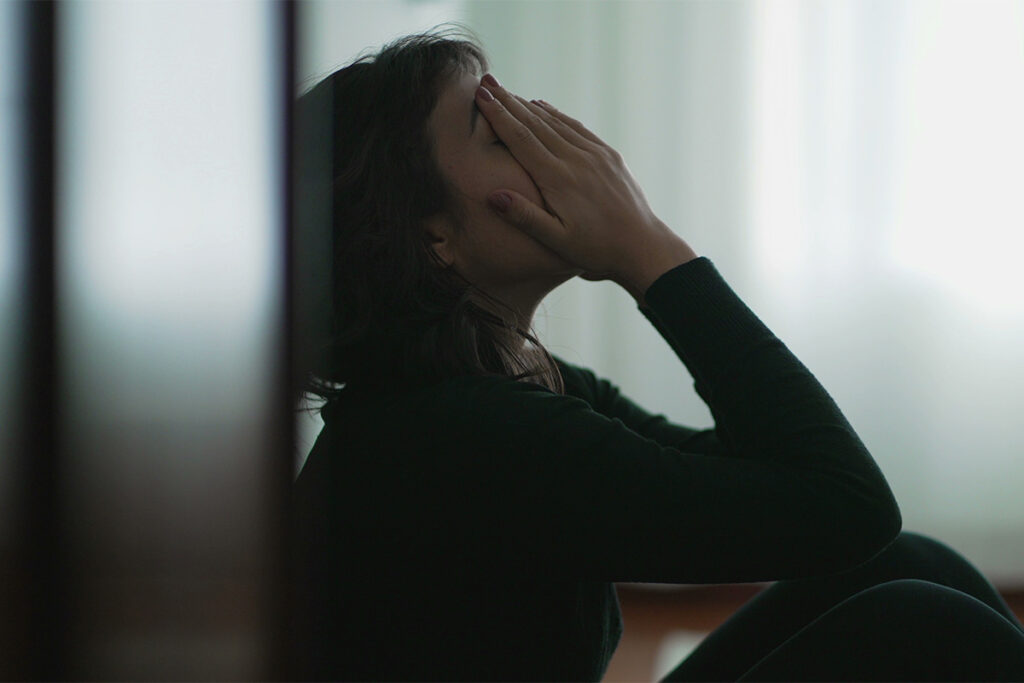Have you or a woman you know experienced domestic violence or sexual assault? These are common causes of big T trauma in women, major life events that cause significant distress. Or perhaps you’ve been diagnosed with a chronic condition, gotten a divorce, or lost your job. These are two examples of little traumas that often affect women every day, or chronic stressors that can have a cumulative effect. Regardless of the severity of the traumatic experience, you’re more likely to participate in substance abuse if you don’t receive proper treatment for trauma.
If you or a loved one is having difficulty with co-occurring disorders like substance abuse and trauma, enrolling in a dual diagnosis treatment program at Promises Brazos Valley is the first step toward healing.
What is the relationship between substance abuse and trauma in women?
Trauma is the body’s response to experiencing or witnessing an emotionally distressing event. This often includes events like being involved in a motor vehicle accident, military combat, natural disasters, or domestic violence. After experiencing a traumatic event, a woman may exhibit signs of trauma such as:
- Increased anxiety or panic attacks
- Difficulty sleeping or having nightmares
- Avoidance of people or places that remind them of the traumatic event
- Drastic changes in weight or appetite
- Withdrawing from loved ones and activities
- Hypervigilance
- Chronic pain, including stomach aches and headaches
- Fatigue
Trauma symptoms can sometimes be overlooked or attributed to other issues, so women may go for years without getting proper treatment. They may brush off symptoms as being related to chronic stress, and instead of contacting a therapist, they reach for the instant comfort of alcohol or drugs. But it’s important to remember that seeking help early on can make a significant difference in your recovery, empowering you to take control of your situation.
The challenges of treating co-occurring disorders
Trauma ranges from mild to severe and can be debilitating for some, so women must put their trust in professionals to help them manage substance abuse and trauma and get their lives back. Co-occurring disorders present unique challenges that can be difficult to manage without specialized dual diagnosis treatment programs.
Substance abuse and trauma create a vicious cycle
Women with untreated trauma often seek solace in substances. They can temporarily escape the intrusive thoughts and anxiety, but once the high fades away, their mental health symptoms will return, often worse than before. Of course, this usually prompts more of a desire to stuff down the discomfort via self-medication.
Using drugs or alcohol as a coping mechanism can lead to a substance use disorder (SUD) down the road. However, enrolling in a rehab that solely addresses substance misuse doesn’t factor in the needs of women struggling with trauma. This is why dual diagnosis treatment for co-occurring disorders is so critical for recovery.
There are multiple layers to substance abuse and trauma
Trauma in and of itself can be challenging since each person responds to distressing events differently. What feels like a minor stressor to one person can be a life-disrupting trauma for another. This is why trauma treatment must take into account this individuality for women to experience noticeable results.
And while learning how to process and heal from trauma, women must also confront the physical and psychological withdrawal symptoms when discontinuing drugs or alcohol. It can often feel like a juggling act, but enrolling in dual diagnosis treatment can help women overcome SUDs while simultaneously working on past trauma, providing the individualized care and attention they deserve.
Enroll in dual diagnosis treatment at Promises Brazos Valley today
You could be experiencing symptoms of trauma without realizing it. If you’ve been the victim of violence, abuse, or neglect and reach for drugs or alcohol for comfort, you may be self-medicating for undiagnosed trauma. Get the help you need to process trauma and overcome substance use disorder through a customized treatment plan that includes behavioral and holistic therapies, medication, and support from a team of trauma-informed professionals. Call Promises Brazos Valley at 888.483.7851 or complete our online form to start experiencing relief today.

